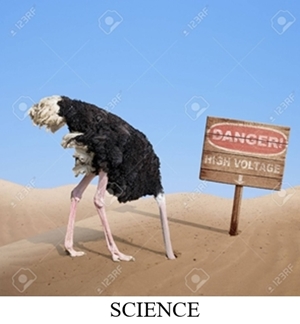Superintelligence - Myth or Reality
"Humans are currently the most intelligent beings on the planet - the result of a long history of evolutionary pressure and adaptation. But could we some day design and build machines that surpass the human intellect?
"This is the concept of superintelligence, a growing area of research that aims to improve understanding of what such machines might be like, how they might come to exist, and what they would mean for humanity's future."" [
ref]
In terms of
The Path of Scientific Enquiry, examination of this article will recognise how many fundamental scientific assumptions are being made. In the spirit of
Sheldrake's 10 core assumptions, we can begin to question superintelligence. However what must clearly be understood is that science's core assumptions suit the interests of power and influence, and remember it was not Oppenheimer who dropped the bomb ... but he did enable it.

"There is no physical law precluding particles from being organised in ways that perform even more advanced computations than the arrangements of particles in human brains."" This is taken from
here, and was written by a host of scientists including Stephen Hawking (respect).
This quote wraps up a whole load of assumptions, particularly the assumptions of science that I have the greatest difficulty with (concerning mind and brain) that is covered in
Sheldrake's dogmas by #1 and #8:-

Nature is mechanical.

Your mind is inside your head.
Another way of looking at this dogma is to say that mind and consciousness somehow emanate from the brain.
Here is a scientist's view of neuroscience that encapsulates this dogma - she explains it clearly and I presume this is relatively standard. Listen to this
bit. Basically she is saying that the brain and nervous system is what makes us think and move - who we are.
Does this need investigating or what?
I don't particularly want to criticise this lady, she is a scientist who happened to be #1 when I searched "what is neuroscience?".
I think it reasonable to associate movement with the nervous system - as far as I know, this leaves me with the brain being what makes us think and who we are. This is in line with the Hawking plus quote in which a group of particles forms the brain ... and therefore makes us think and who we are.
In other words Hawking plus are searching to convert the fictional "
positronic brain" into reality. It appears they think that by a suitable rearrangement of particles there will be a real "positronic brain" that will be superintelligent. They are so convinced of this threat they wrote
this article about it.
As Sheldrake (in his book
Science Set Free) and others have pointed out, science was once seen as a panacea, that it will answer all. This quote indicates that process "
In the history of science we have discovered a sequence of better and better theories or models, from Plato to the classical theory of Newton to modern quantum theories. It is natural to ask: Will this sequence eventually reach an end point, an ultimate theory of the universe, that will include all forces and predict every observation we can make, or will we continue forever finding better theories, but never one that cannot be improved upon? We do not yet have a definitive answer to this question... - Stephen Hawking & Leonard Mlodinow, The Grand Design, p.8" quoted by Sheldrake. Or as Sheldrake says himself in Science Set Free "The biggest scientific delusion of all is that science already knows the answers. The details still need working out but, in principle, the fundamental questions are settled." [p17 of 770].
Now science has a new panacea AI-solutionism, that AI has all the answers.
Here are some reasons why not. But I fear this AI-solutionism in much the same way as I fear those in science who claim it has all the answers.
I don't fear the superintelligence of robots. I don't fear that there can be a rearrangement of particles that can create a powerful neo-positronic brain which will annihilate humanity because such a brain would be superior to humans. But I am very frightened of AI. We have already created AI in drones and smart bombs that are used to kill humans, if Asimov's Robotics laws were in place they would not be doing so.
The problem is not AI going out of control, it is that humanity goes out of control. The NRA slogan is "guns don't kill humans do". This can be rephrased as "drones don't kill humans kill", "smart bombs don't kill humans kill". And the argument against the NRA applies to drones and smart bombs, if we take away the drones and the smart bombs - and the guns - there is no killing. In the US there is a campaign against guns because Americans are being killed, there is minimal resistance to drones and smart bombs because it is not Americans who are dying.
The problem with AI is not "robots-out-of-control" but humans out of control. Humans are continually searching for more powerful weapons to destroy each other primarily for profit. And AI-robots as soldiers are such weapons. Then the NRA will say "AI-robots don't kill humans kill".
Scientists are researching AI as scientists do - in search of learning. That learning as with Oppenheimer is used by the greedy and powerful to further their own ends.

Scientists have to start demanding that protocols (such as the 3 laws) be put in place for their AI development. AI cannot be weaponry, it has to be used for the betterment of humanity. The protocols need to be established now, established for AI, established for drones, established for smart bombs.
Scientists, do not weaponise the 1%.


